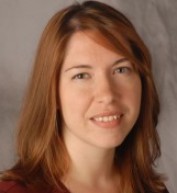FAITH + IDEAS =: last updated 07/03/2012
October 29, 2008 Volume 1 Issue 3
. . . an e-conversation with the Faculty of Gordon College . . .
By Casey Cooper
What do you want first: the good news or the bad? I like to start with the good news, too, so here it is: despite our current economic condition, one that is being reported with dramatic words like crisis, recession, failure, and chaos; despite significant pressures and uncertainty, we actually live in stable circumstances. The benefits we enjoy in the U.S. are many and the fact that we are civilly working through this situation without violence and government overthrows shouldn't be taken for granted. The really good news is that our hope is not in this world anyway.
What, then, is the bad news? Simply this: instead of dissecting the economic issues of our times (which might be boring as well as bad), I'd prefer to offer a challenge, one that isn't necessarily comfortable or encouraging. I'll start with an explanation as to why.
I have long felt that the greatest failure of the modern church has been our inability to take care of the poor in our communities. True, the government offers programs that help, but frequently, they provide little hope. It should be no surprise that many government programs come up short in areas the Bible clearly charges the church to address.
So here's our challenge (the bad news): In times of economic crisis, when the needs are ever clearer and certainly more pressing, the responsibilities do not lie with social services or bail outs. They lie with us. We cannot seal off our doors and try to hold on to as much as we can. Instead, we must give, and not just a little now and then, but abundantly. After all, "It is easier for a camel to go through the eye of a needle than for a rich person to enter the Kingdom of God."
Likely, this passage in Matthew 19:24 is familiar. But if it evokes in us thoughts of Bill Gates and Warren Buffet, then we need to consider it again. If we think outside of our own neighborhood, outside of our own comfort zone even, it's not hard to realize we are the rich. We live in the wealthiest nation on earth and consequently, have an equally rich responsibility.
Our responsibility to the poor within our own communities, our own country, and around the world is a great privilege and ongoing challenge, especially in times when money is tight. Though the government might see the need for economic stabilization as more important than the individual needs of people, we cannot afford to. It may just be that providing aid to our financial markets is the best option for government intervention, but our resources and focus must remain on people.
Of course, as an accountant it wouldn't be fair for me to extend this charge without some practical advice on how to live in a way that enables continuous generosity. So here are my top three tips:
1. Live on a budget. The conscientious giver always starts a budget within her income, not expenses. Just like a diet, a healthy and generous lifestyle is manageable but a crash diet/budget is only effective for a season. And let's only use credit cards as a method of purchase, not a means to finance the latest gadget or gift.
2. Keep it real. It's possible for us to buy too much house, food or stuff, all of which often comes at the expense of our giving. We need to think about the long run effects purchases might have on our budget and our giving, reading everything we can, and investing only in what we know is honorable.
3. Teach others. Though money matters are too often private issues in our culture, we shouldn't be afraid to help others, especially children, be open about finances and creative ways to give. Silence only breeds a generation with entitlement issues and financial ignorance.
No matter what the economic bad news signals, I'm convinced there'll be plenty of good news the more we learn how to live lives that enable us to give, generously, continuously, and cheerfully.
Casey Cooper, CPA, is an assistant professor of business and economics at Gordon College. She lives in Beverly, MA, and is currently hard at work promoting Gordon's new minor in nonprofit studies.
###
Copyright 2008 by Casey Cooper @ Gordon College in Wenham, MA, U.S.A. www.gordon.edu Though forwarding of this e-column is permitted (and encouraged) NO part of this may be reprinted or reproduced without prior written consent from the editor of Faith + Ideas =
For editorial requests, please contact, [email protected] or call 978-867-4752.
For archived columns, please visit, http://www.gordon.edu/faith+ideas
